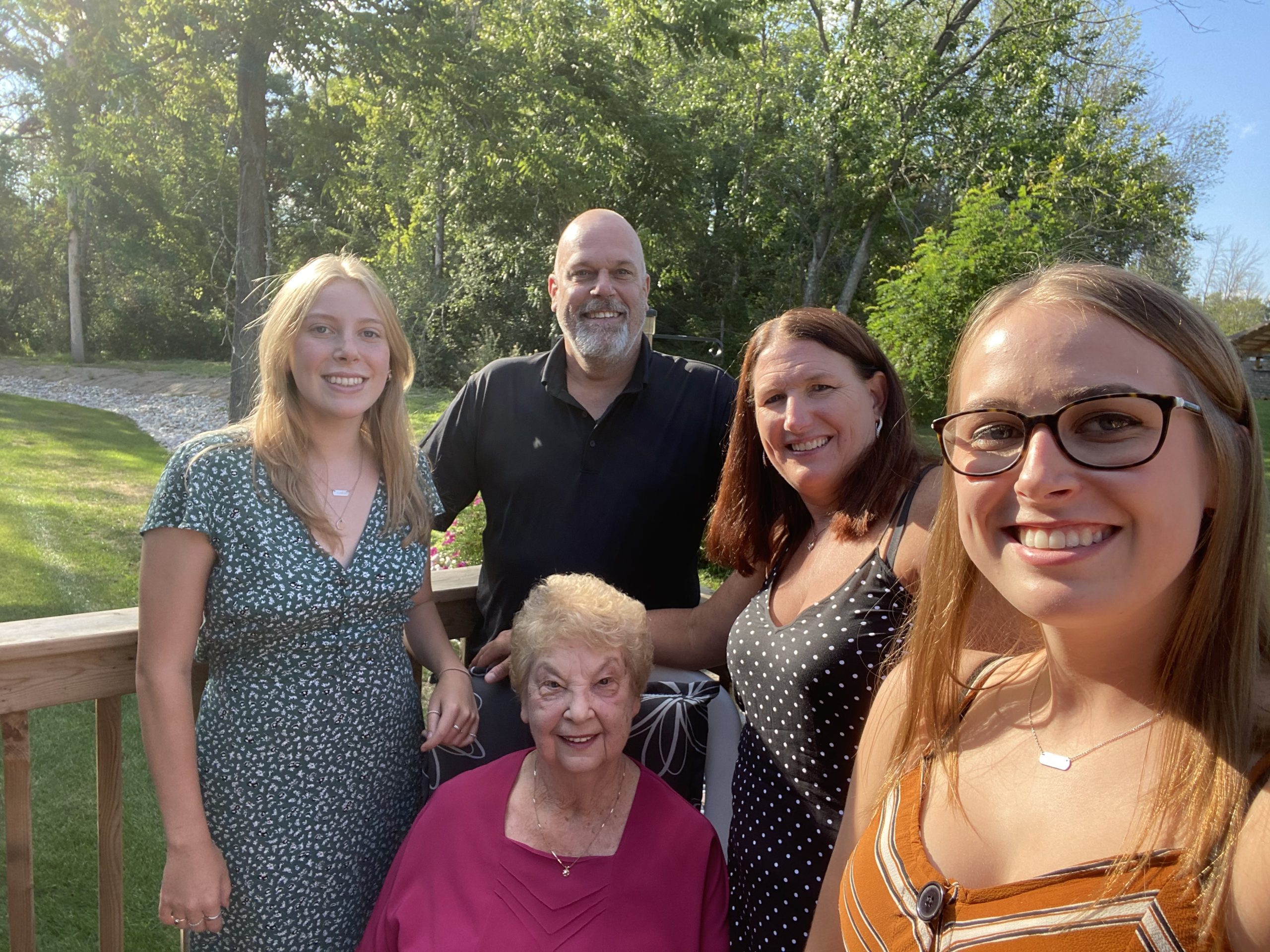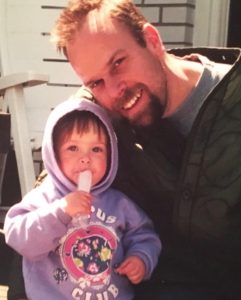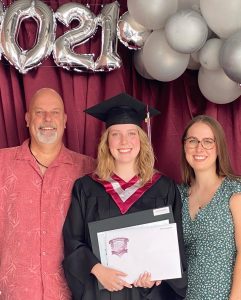- 2023-10-16
- Blog
Resilient foundations

When you have a parent with posttraumatic stress disorder (PTSD), it’s easy to become consumed with their mental health, with their diagnosis and making sure that they are okay. It’s easy to become involved with their journey and their healing. It took me a long time to realize that as a child of a Veteran, that wasn’t my responsibility.

I first became involved with Atlas by happenstance. A course offered through my master’s degree program was creating a virtual exhibit on Veterans with PTSD and their Families. It was a fitting coincidence, and as I got to know more about Atlas I became more aware of their focus on Veteran Families. As my Family and I worked through my father’s PTSD diagnosis and treatment, we rarely paused to think about our own well-being.
I am fortunate to be involved with Atlas now in a variety of ways, particularly with MindKit. When I was invited to be a member of the advisory group that would provide input based on our lived experiences, I jumped at the opportunity. I even had the chance to contribute to a very special video for MindKit’s website.
Recording Resilient foundations was a truly transformational experience for me. From start to finish, from writing to recording, working on that video allowed me to open up and express myself in a way that I hadn’t before. While it was strange to create something that seemed quite personal for a public audience, I reminded myself that this video has the opportunity to help other children of Veterans. What truly made the experience meaningful were the faces that greeted me in the work room on the first day — faces of other adult children of Veterans who could actually relate to the stories I was telling in my video. Even when they couldn’t directly relate, they could empathize. It was amazing how quickly we were able to open up with one another, to understand when we needed space to think and process, and how easy it was to just get along. We quickly found community within each other that we had all been lacking.
When MindKit was finished and we were able to pass along the link to friends, Family and ultimately, the world, the first thing I did was send it to my younger sister. Her text back to me read, “Wow, this would have been nice 10 years ago.” Although our father’s PTSD wasn’t officially diagnosed until recently, we knew as children that something was going on, something bigger than us. Having a resource like MindKit could have had the potential to literally change our lives — to allow us to express ourselves and healthily process our at-home life in ways we weren’t able to as children and teenagers. Importantly, it would have let us know that we weren’t alone.
Having a father who retired from the military before we were born was something I always had trouble understanding. I didn’t know my “military dad” and yet I saw him in pictures and from witnessing firsthand the aftermath of his experiences. There was no one around me who could relate except for my sister, and we only knew our home. Now I feel so fortunate to be a part of MindKit. To have been a part of something that my sister and I could have benefited from — something that could change the lives of youth who have loved ones with PTSD. Atlas’s continued commitment to Veteran Families inspires me every day to share my story and to continue to be honest and open about my experiences.
— Sam

MindKit is a place for youth to explore things related to mental health. It was created especially for and by young Family members of Canadian Veterans living with a posttraumatic stress injury (PTSI). Visit MindKit’s website to learn about mental health, what it’s like to live with PTSI in your Family and different ways to handle challenges. You can also watch real stories of Veteran Family members like Sam from all across Canada.

